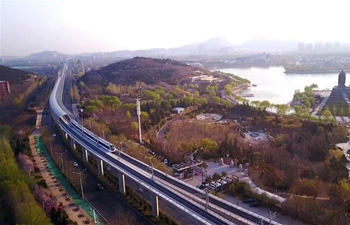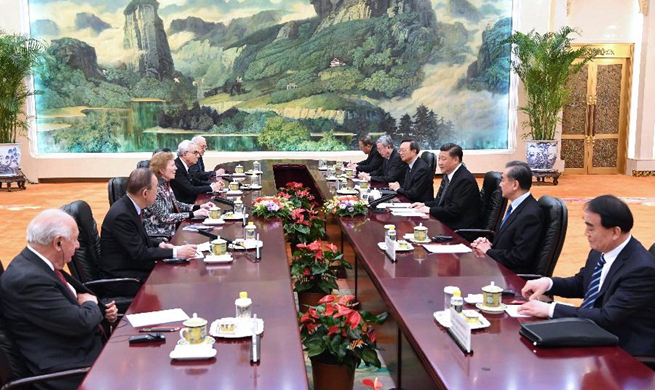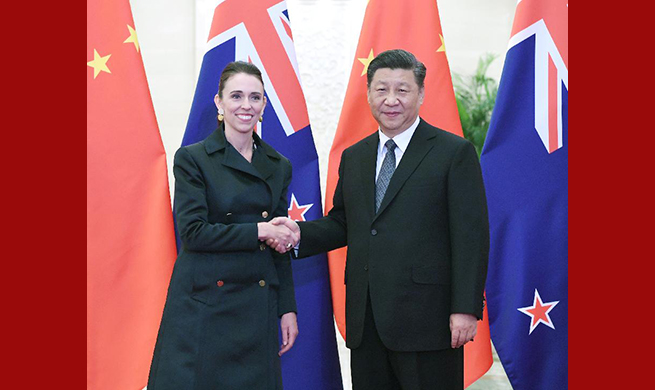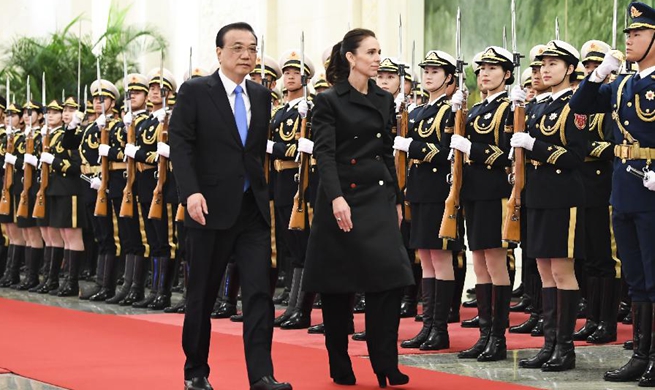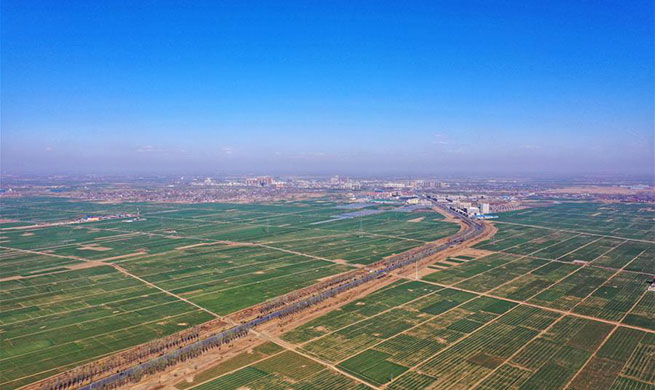TOKYO, April 2 (Xinhua) -- The Japanese government on Tuesday approved deploying Self-Defense Force (SDF) personnel to join a multinational peacekeeping force in Egypt for the first time since controversial new security legislation came into effect in 2016.
Japan’s cabinet green-lit the contentious plan on Tuesday to dispatch two SDF members to join the Multinational Force and Observers (MFO), a multinational peacekeeping force in Egypt, which is not under the command of the United Nations.
The pair will be sent to the Sinai Peninsula in Egypt, in the first such deployment since controversial security legislation came into effect in 2016, amid a staunch political, public and international backlash.
The SDF personnel will be dispatched to the MFO's headquarters on April 19 and will stay there until Nov. 30, under the government’s current plans.
They will be charged with facilitating communication and other liaison duties between Israeli and Egyptian forces, the government here said.
The MFO, for its part, overseas the ceasefire between Egypt and Israel under a peace treaty inked in 1979 after the Arab-Israeli War.
The MFO have had a presence on the peninsula since 1982, with support from Japan, up until now, coming in the form of financial assistance.
The Japanese government has judged that the current situation where its troops will be operating on the Sinai Peninsula is “generally calm,” although the SDF members will be equipped with handguns and rifles, as per the MFO's request.
The government here also believes the current situation in Egypt does not breach the five legal requirements necessary for participating in UN peacekeeping missions, one of which includes the existence of a ceasefire agreement among warring parties.
Japan has decided to adopt the UN’s five legal requirements as a barometer to determine whether or not to send SDF members overseas for peacekeeping missions, regardless of the UN’s actual involvement.
The imminent deployment, the first of its kind since Japan loosened the constraints of the SDF under the postwar pacifist constitution, and the first non-UN-backed overseas mission for Japanese troops, has, however, drawn a great deal of flak from those opposed to the move and other military plans potentially in the pipeline.
Legal experts and constitutional scholars believe the new security laws, which allow Japan to send troops overseas on peacekeeping missions if requested by international organizations, thwarts Japan’s pacifist charter.
The green-lighting of the SDF’s deployment to Egypt has also been interpreted by critics as a litmus test ahead of Japanese Prime Minister Shinzo Abe’s plans to amend the pacifist charter for the first time since World War II, to further loosen the constrains on Japan’s forces and allow them to increase their footprint in overseas theaters.
To achieve his goal, Abe will need to secure a two thirds majority in a vote in both houses of parliament and a majority in a public referendum.
The ruling Liberal Democratic Party’s (LDP) coalition Komeito ally, however, is wary of amending the constitution, Article 9 of which forever renounces war and prohibits Japan from maintaining armed forces with war potential.
The majority of the public are also against the contentious move.
Nationwide rallies and protests were held before, during and after Abe’s LDP “steamrolled” the security bills through both chambers of parliament and into a constitutionally dubious law.





